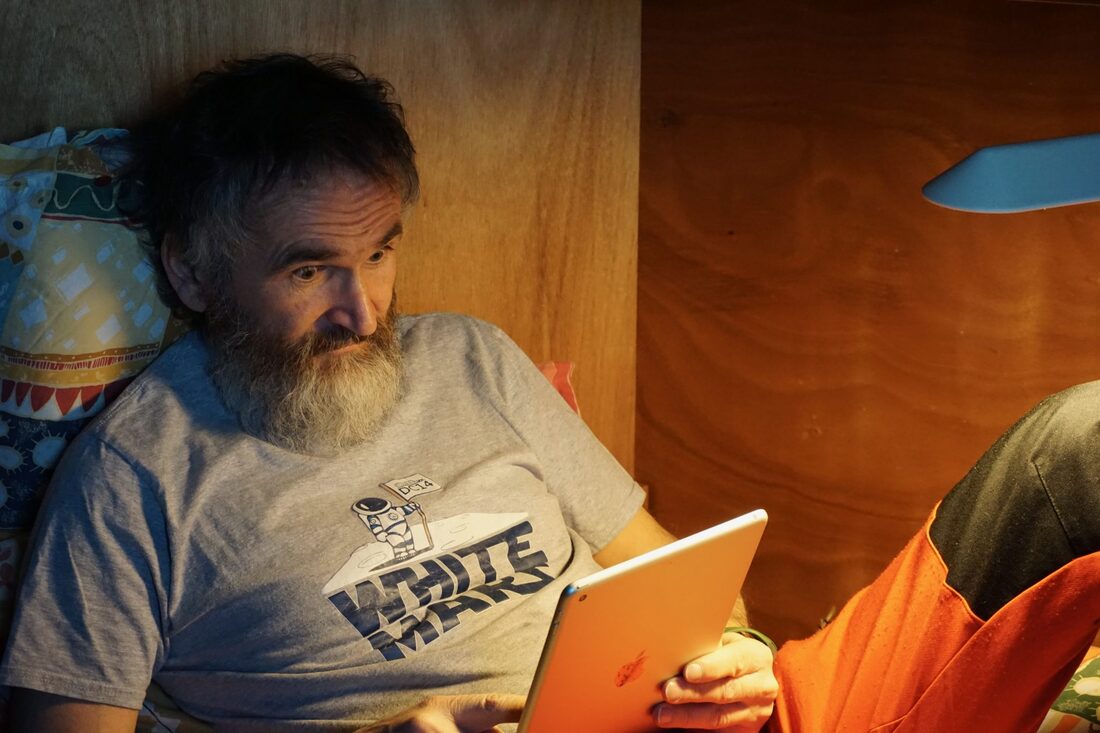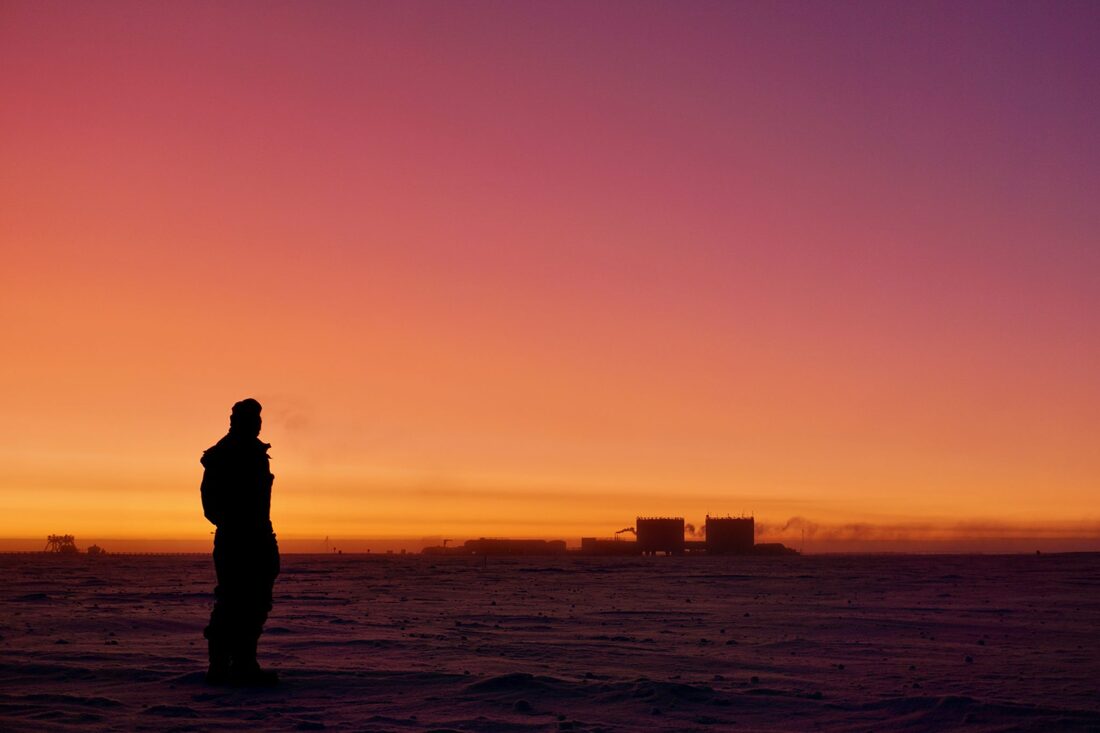|
ESA-sponsored Dr Stijn Thoolen delivers the last part of his 'Let's Talk Science' blogs, written during his year at the Concordia research station in Antarctica. Catch-up with his previous blogs at Part 1, Part 2, Part 3, Part 4, Part 5, Part 6, Part 7, Part 8, Part 9 Dr Stijn ThoolenMedical Research Doctor, Concordia Research Station, Antarctica But there is more to the ESA lab, and I have saved the best for last. So, now that you are probably overloaded with theories and facts, let’s talk about something very different. Let’s talk about sex! And before we continue, you have to promise me to turn on another song, to end this blog with some appropriate groove.
But maybe there is more to it than it seems, and what Cherry-Garrard says is not necessarily easy to do. We are human, after all. Sexuality is one of our core features, vital for our existence, and for many it is a fundamental source of pleasure, intimacy, bonding, and social relations. Researchers have shown how sexual deprivation can lead to frustration, anger and even depression, and also seen from a group perspective anecdotal accounts have shown that sexual desire and related feelings of jealousy and competition can lead to adaptation problems in extreme environments. Including Concordia! But the problem with sex it that we don’t easily talk about it. Perhaps it is so close to our core that opening up about it can make us feel vulnerable. A sensitive topic, and while researchers are currently busy figuring out how to compose future space crews in terms of culture, personality and gender, data about sexual behaviour and its effects on team dynamics in extreme environments is basically non-existent! How do we cope? How, why, and when do we suffer? Recent political debates and scandals of sexual harassment have already highlighted the importance of having a work environment free of sexual hostility, and if you ask me, it would be irresponsible to send humans on a multi-billion dollar long-duration mission to Mars without being able to answer these questions! As such, the project SWICE (‘sexual well-being and sexual security in isolated, confined and extreme environments’), for the first time in spaceflight research history, is breaking the taboo. As the first study of its kind, it aims to gather basic information about human sexuality while living in isolation and confinement, and it does so by making us in Concordia talk: ‘How often does another Concordia inhabitant asks me for sexual favours?’ (we better forget the jokes at the dinner table…), ‘How often does another Concordia inhabitant produces sexually explicit graffiti for display at Concordia?’ (we better forget the sexually explicit Play-Doh creations we made with the whole crew last month…), ‘How enjoyable is your sexual life right now?’, ‘How often do you masturbate?’, ‘How often do you experience an orgasm?’ (Damn, you want to know everything!). We had a structured anonymous interview (you know, like in the movies, with voice distortion and stuff) before we came here, and we will repeat it upon our return to Europe. Meanwhile, here in Concordia we fill in questionnaires throughout the year that look much like the above. And to make sure that everyone feels safe and confident to provide such sensitive data, and as I don’t want to know how the others here spend their free time, we all got an iPad to send the data directly to Berlin. This way everything stays anonymous. Still, answering these questions are good for a solid lesson in shamelessness I would say! Everything for a safer, healthier, and more successful environment, and again, for the good cause of science! And with that I think you have heard enough ESA lab, and enough material to ponder upon. So now you know a little more about the challenges that we face here and what keeps me busy so far from home, I can only encourage you to appreciate the things we sometimes miss here, and enjoy the environment you interact with. Take a deep breath of oxygen-rich air, get yourself dirty every once in a while, find some fresh food, explore the beautiful and ever-changing world around you! Note: this article was originally posted on the ESA blog website (LINK) and permission has been obtained to republish it here.
Comments are closed.
|
Welcometo the InnovaSpace Knowledge Station Categories
All
|
InnovaSpace Ltd - Registered in England & Wales - No. 11323249
UK Office: 88 Tideslea Path, London, SE280LZ
Privacy Policy I Terms & Conditions
© 2024 InnovaSpace, All Rights Reserved
UK Office: 88 Tideslea Path, London, SE280LZ
Privacy Policy I Terms & Conditions
© 2024 InnovaSpace, All Rights Reserved


 RSS Feed
RSS Feed